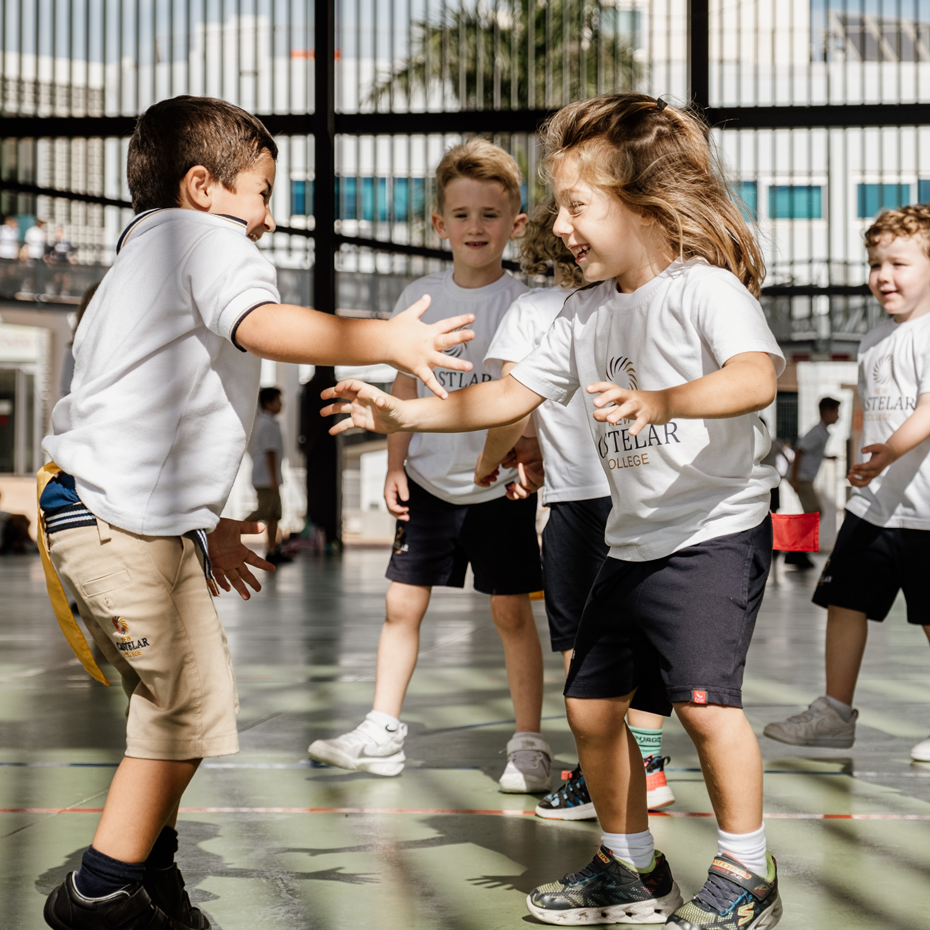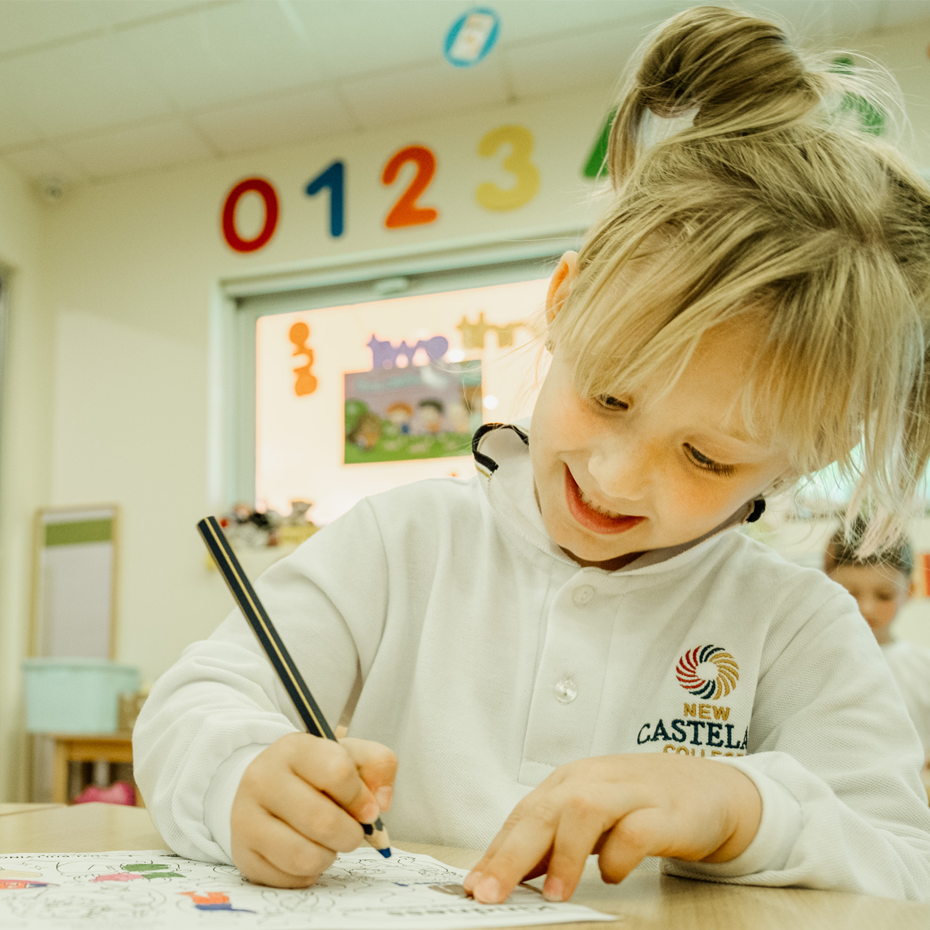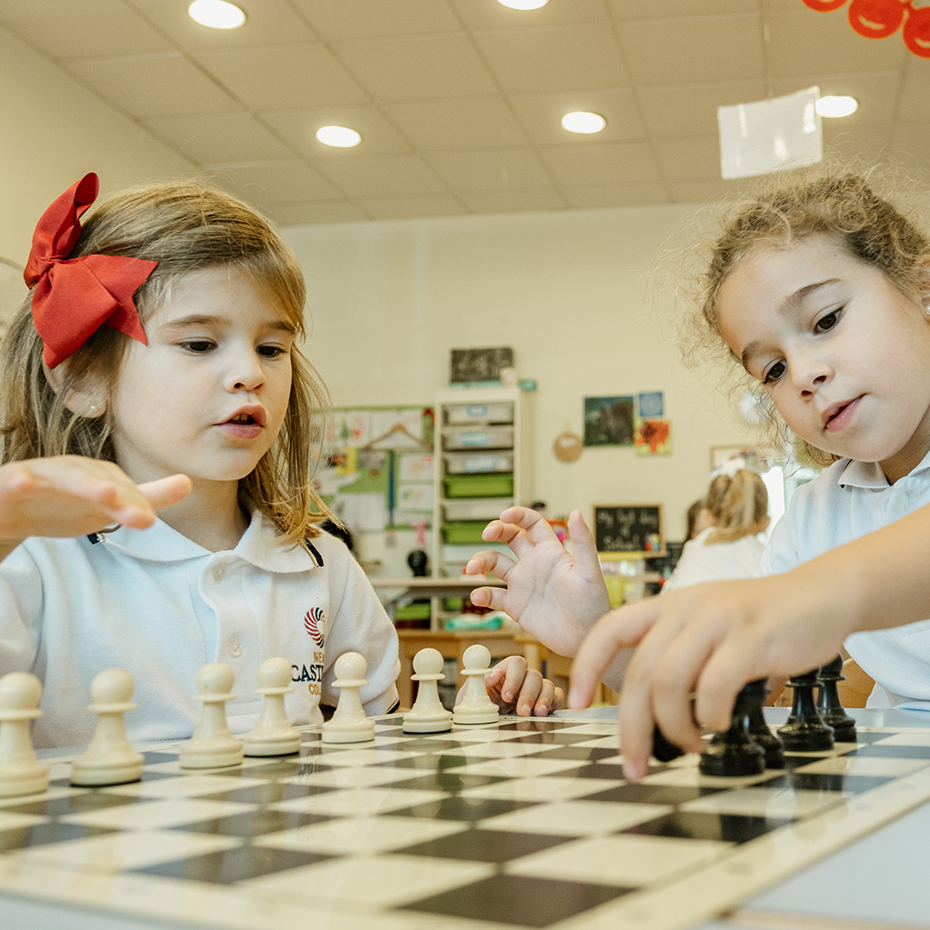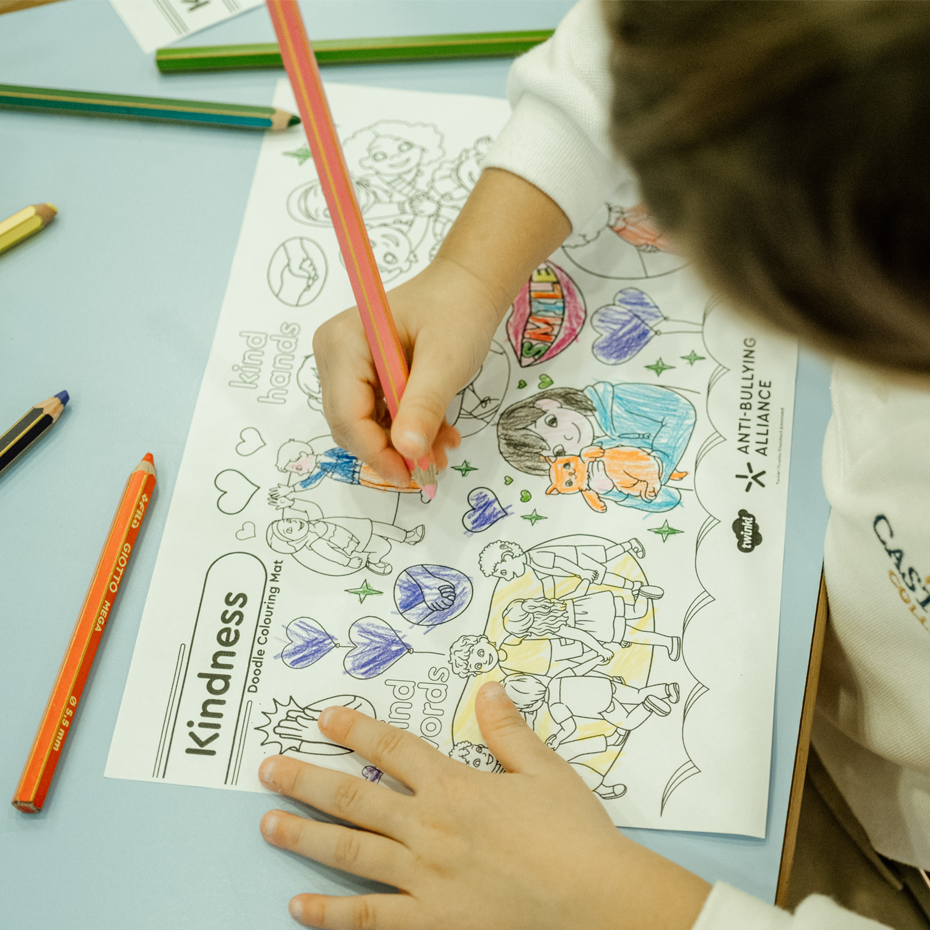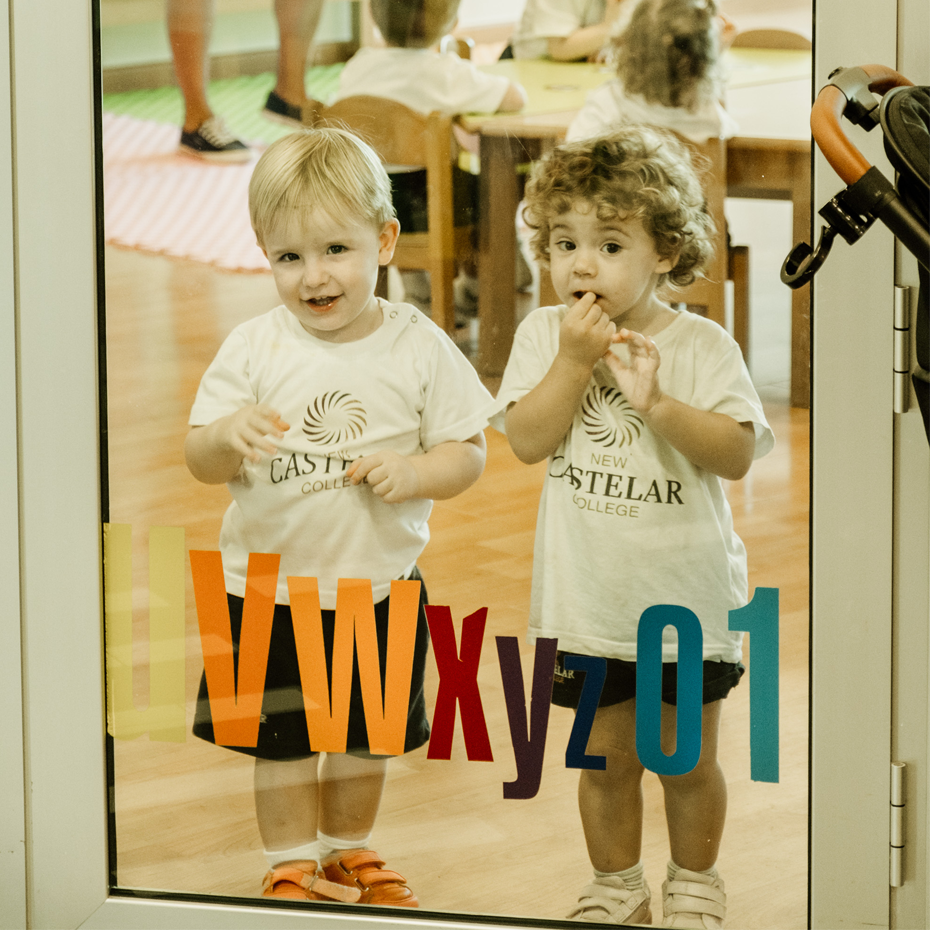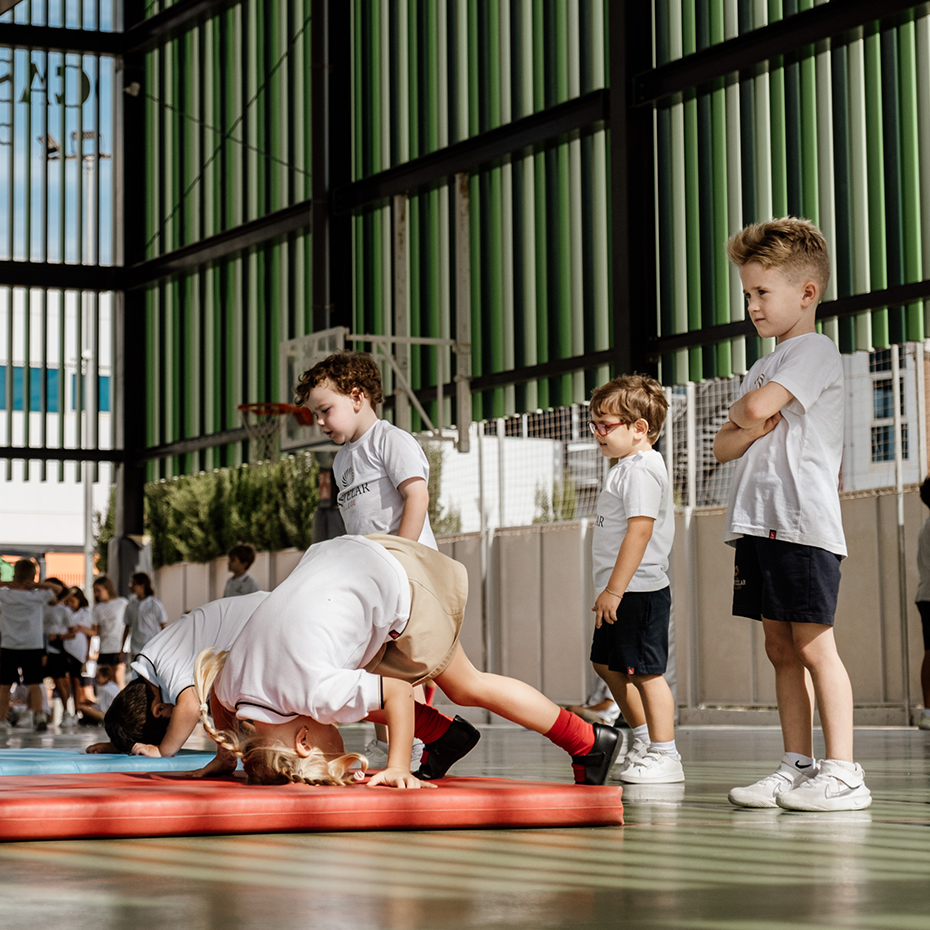Infant Education
The Future Starts Today!NEW Castelar College is a member of the World Association of Early Childhood Educators (AMEI-WAECE), enabling our Early Childhood Education teaching team to receive continuous training and transfer of experiences with educators from all over the world

FIRST CYCLE OF EARLY CHILDHOOD EDUCATION
This cycle covers from 0 to 3 years. It's a very special and important stage in a child's life, so our goals are focused on their social-emotional and motor development.
We pay special attention to the adaptation period, as we believe that it's essential to respect each child's different paces, needs and development.
For us, the physical learning environment is vitally important, so our classrooms are equipped to ensure young children develop their curiosity, interest and independence. We attach special importance to children's psychomotor development through games where motor imitation, sensory play and manipulative play are key factors.
Our methodology is based on stimulating, flexible and individualised work and we encourage each child to become a dynamic protagonist of their own learning.
Within school hours, to complement and give meaning to learning, we carry out activities both inside and outside the school. These activities encompass all the objectives we will be working on: excursions, workshops, various projects and activities shared with families.


SECOND CYCLE OF EARLY CHILDHOOD EDUCATION
This cycle ranges from 3 to 6 years of age. This cycle covers from 3 to 6 years. Each child is an individual, with unique interests, skills and needs that set them apart from others. In addition to looking after their academic development, here at New Castelar College we accompany children in their process of personal growth, sharing moments of endearment and affection that help them forge their own personality.
We believe in individualized teaching respecting the each child's pace and so we take great care to:
- Create a rich and stimulating environment in our classrooms that favours learning in a way that avoids limiting the child's potential.
- Always start from what the child knows, and put them in situations that allow them to relate what they know with what is in front of them..
- Diversify the materials used in learning situations, encouraging generalization and transfer to different contexts.
- Always put the child in a situation of success. Use a positive teaching approach based on success. A child has to have the feeling of success at least once a day, and that's our responsibility.
- Make teaching/learning situations more flexible so that they can be enriched with unplanned inputs
- Encourage meaningful learning, allowing the child to build their knowledge from play and everyday experiences.
- Globalize content areas and activities, promoting project work.
- Use play as a motivating learning activity with a global view.
- Accompany them as they form their first social groups.
- Building your self-concept.
- Take care of their hygiene.
Contact us!
We are happy to help you
